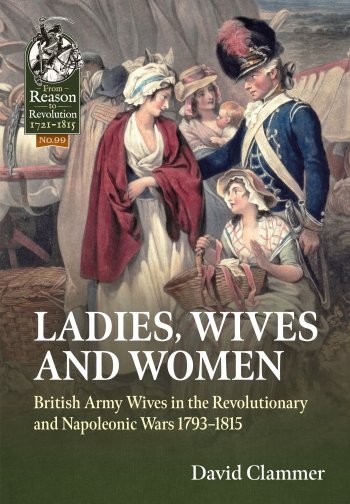-
Załączniki bezpieczeństwa
Załczniki do produktuZałączniki dotyczące bezpieczeństwa produktu zawierają informacje o opakowaniu produktu i mogą dostarczać kluczowych informacji dotyczących bezpieczeństwa konkretnego produktu
-
Informacje o producencie
Informacje o producencieInformacje dotyczące produktu obejmują adres i powiązane dane producenta produktu.HELION
-
Osoba odpowiedzialna w UE
Osoba odpowiedzialna w UEPodmiot gospodarczy z siedzibą w UE zapewniający zgodność produktu z wymaganymi przepisami.
During the Napoleonic wars it was customary for British troops ordered on active service to take some of their wives with them. The usual proportion was six women per hundred men. The wives who were to accompany their husbands were chosen by ballot: excitement for the lucky ones and anguish for those left behind. The latter often marched with the regiment to the port of departure, desperate to remain with their men till the last moment, and there were harrowing scenes as families were separated, perhaps forever.
The women who were to accompany their husbands had to endure all the hazards of the high seas, often in slow and leaky transports. In bad weather, conditions resembled a slave ship, with men and women battened down below, rolling about and seasick in the darkness. There were storms, fires, childbirth and sometimes shipwreck to contend with.
Once landed in the theatre of war, the women faced a life of almost constant marching in summer heat and winter cold. Most of them managed to acquire a donkey to carry their few possessions. There were no tents until late in the war, and regiments were either quartered in whatever buildings were available, or bivouacked in the open. Clothing and especially shoes wore out, and women often had to supply their wants by stripping the dead. Food was frequently in short supply, and, as they were entitled only to half a man’s ration, they were notorious plunderers. This frequently resulted in brutal punishment from the provost marshals.
After battles or sieges, soldiers’ wives tended the wounded, but they were also determined looters, and shared the army’s besetting sin of drunkenness. Occasionally they were taken prisoner, and were sometimes involved in the actual fighting. More often they had to search a battlefield for a wounded husband or his mutilated remains. Many women were widowed, and solved the problem by quick remarriage to another soldier, some of them several times.
After the war, the survivors came home to an uncertain future. Some prospered; others slipped into penury. Some had a surprising later life, and a few earned themselves permanent memorials. Most vanished from the record. This book is an attempt to shed some light on these forgotten heroines and their part in the country’s long war against the French.








